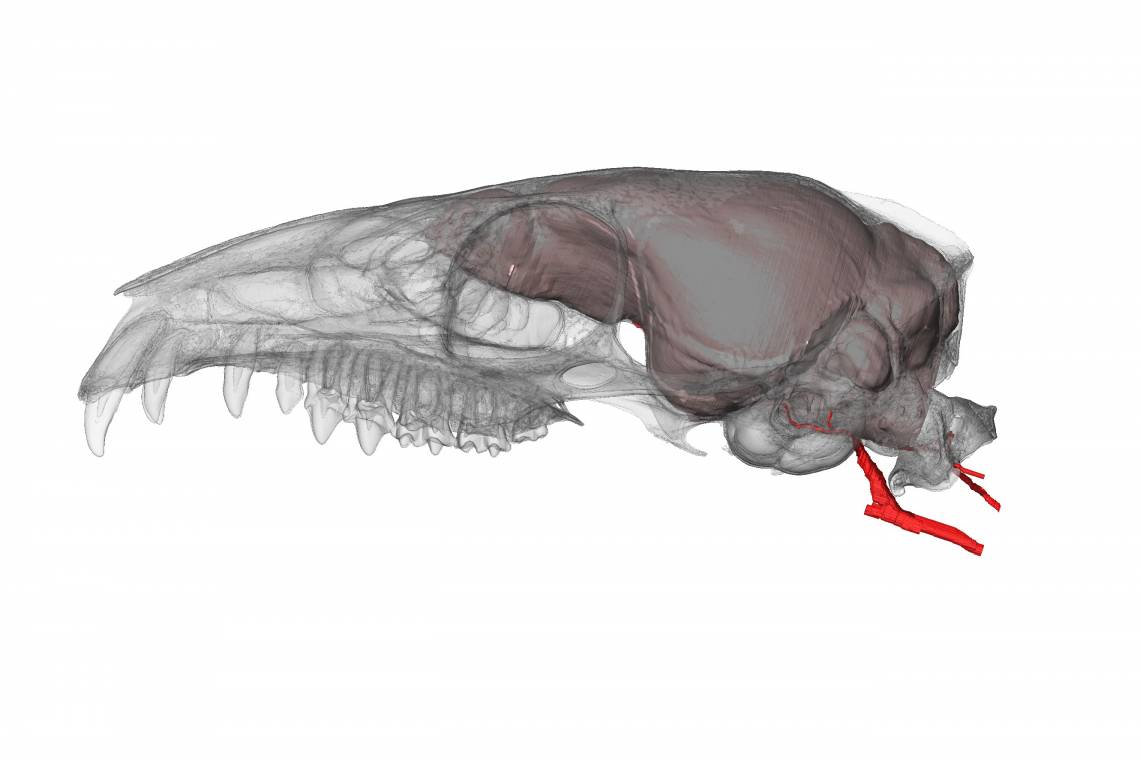搜索结果: 1-15 共查到“Might Think”相关记录58条 . 查询时间(0.062 秒)

静息态功能磁共振成像(Resting-State fMRI)因设计简单、便于积累大数据、临床易实施等优势而成为主流脑影像研究手段。采用静息态方法的研究取得了丰硕成果,但静息态fMRI的可靠性常受到质疑。在导致可靠性降低的诸多因素中,静息态下无约束的心理活动变异可能起到关键作用


Humans Don't Use As Much Brainpower As We Like To Think(图)
Humans Don't Use Much Brainpower We Like To Think
2017/11/23
For years, scientists assumed that humans devote a larger share of their daily calories to their brains than other animals. Although the human brain makes up only 2 percent of body weight, it consumes...
Variations in energy intake: it is more complicated than we think
Variation energy intake complicate
2018/11/20
Weight gain and the resulting obesity is fundamentally the consequence of chronic energy imbalance, with energy intake exceeding energy expenditure, which then leads to excessive energy (fat) storage.
Most people like to chat. It’s pleasant to talk to your family over breakfast, and at work,
you might go to the coffee room or water cooler mainly because you hope to bump into
someone and have a li...
“Big Food” Companies Have Less Power Than You Might Think:Progress Toward Sustainability Slowed by Limited Knowledge and Influence on the Farm
Big Food Companies Have Less Power Might Think Progress Toward Sustainability Slowed Limited Knowledge Farm
2017/7/21
A Dartmouth study finds that “Big Food” companies are striving to make food more sustainable from farm to factory but have less power than you might think. In fact, most Big Food companies have little...
SO YOU THINK YOU CAN SECURE YOUR MOBILE PHONE WITH A FINGERPRINT?
SECURE YOUR MOBILE PHONE FINGERPRINT
2017/4/27
No two people are believed to have identical fingerprints, but researchers at the New York University Tandon School of Engineering and Michigan State University College of Engineering have found that ...
FRAMEWORK SEE-THINK-DO AS A TOOL FOR CROWDSOURCING SUPPORT – CASE STUDY ON CRISIS MANAGEMENT
Crowdsourcing Collaboration Awareness See-Think-Do Crisis map
2016/11/15
See-Think-Do is a framework originally used as an approach focused on a service and product marketing on the Internet. Customers can be classified into three groups according to their involvement from...
It is Lower Than You Think it is: Recent Total Fertility Rates in Brazil and Possibly Other Latin American Countries
Fertility Brazil Total Fertility Rate Latin America Births Low Fertility
2016/3/17
Understanding emerging patterns of low fertility in middle-income countries is of essential importance. We
demonstrate that the use of the P/F Brass methods in Brazil to adjust for a presumed underre...
Feeding birds in your local park?If they're white ibises in Florida,think twice
Feeding birds local park ibises Florida
2016/2/23
The following is part 17 in a series on the NSF-NIH-USDA Ecology and Evolution of Infectious Diseases (EEID) Program. See parts: one, two, three, four, five, six, se...
Using Think Alouds, Think Afters, and Think Togethers to Research Adolescents’ Inquiry Experiences
Think Alouds Think Afters
2015/9/15
This article presents three research methods—Think Alouds, Think Afters, and Think Togethers—as ways of gathering data to describe the experiences of adolescents during instructional activities. These...
“Think” pragmatically: Children’s interpretation of belief reports
belief reports false belief Theory of Mind pragmatic inference truth value judgment task
2015/9/6
It has often been reported that children under 4-5 years of age evaluate belief reports based on reality instead of beliefs. They tend to reject sentences like, “John thinks that giraffes have stripes...
Three-year-olds’ understanding of know and think
factivity presupposition acquisition semantics-pragmatics interface attitude ascriptions attitude verbs factive verbs child pragmatics theory of mind
2015/9/6
This study investigates three-year-olds’ representations of the verbs think and know, in attempt to assess their understanding of factivity. Know, being factive, is used in contexts where the compleme...
Think of the Children
the Children
2015/9/2
Michael Devitt thinks that Noam Chomsky is fundamentally misguided about the nature of human language and the subject matter of linguistics.
SwRI scientists think “planetary pebbles” were the building blocks for the largest planets
SwRI scientists planetary pebbles building blocks largest planets
2015/9/9
Researchers at Southwest Research Institute (SwRI) and Queen’s University in Canada have unraveled the mystery of how Jupiter and Saturn likely formed. This discovery, which changes our view of how al...


